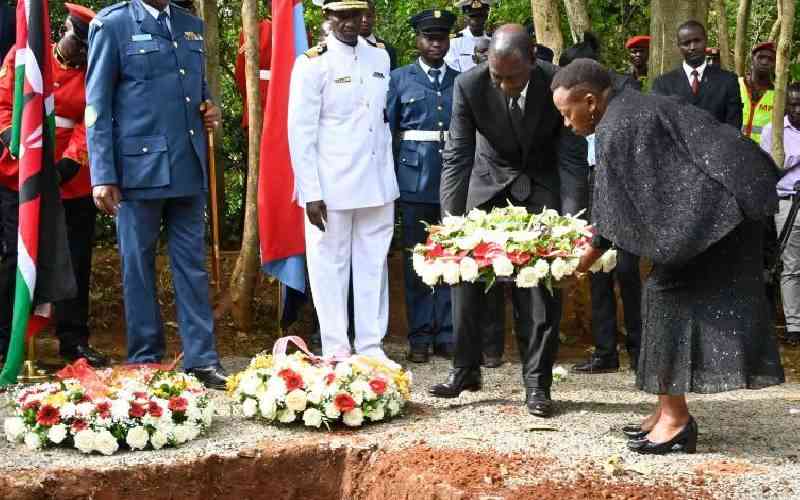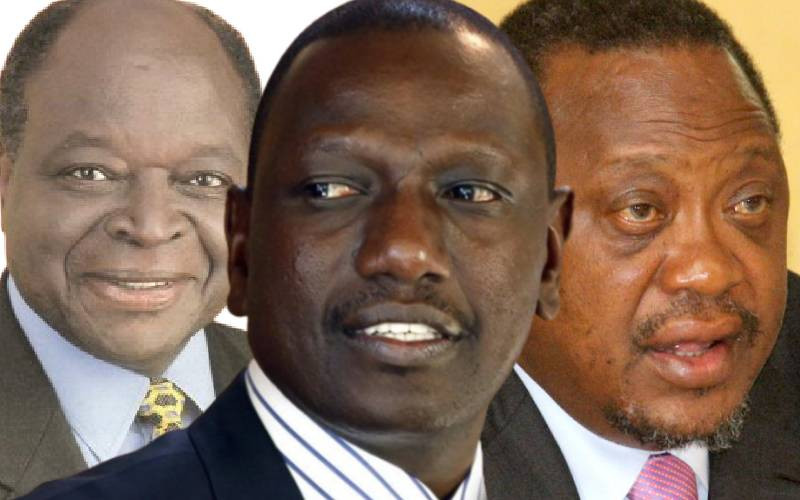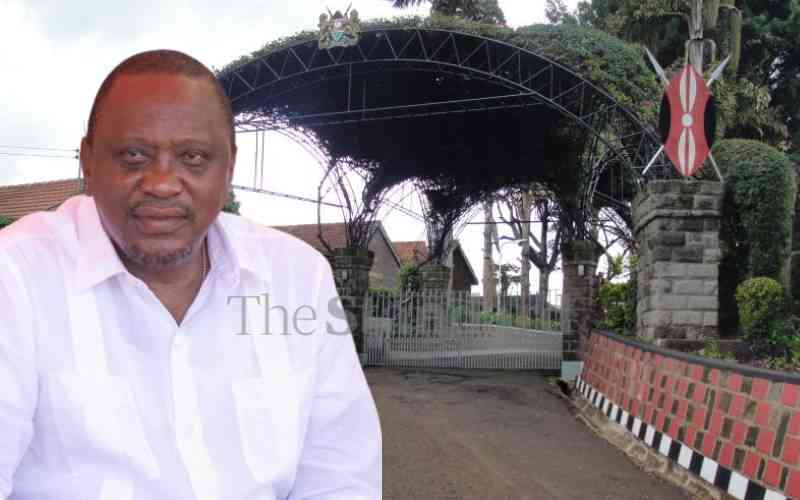BY WAHOME THUKU
THE HAGUE: An expert witness told the International Criminal Court (ICC) that President Uhuru Kenyatta was once a member of the Orange Democratic Movement (ODM) top leadership organ, the Pentagon.
French socio-political scientist Herve Maupeu said Mr Uhuru was originally a member of the Pentagon representing the Central Province soon after the 2005 Constitution referendum.
Prof Maupeu was giving his evidence on Kenya’s social, cultural and political history during the trial of Deputy President William Ruto and journalist Joshua arap Sang at The Hague, Netherlands.
The trial resumed Monday after the long Christmas break, two days after the status conference held on Friday. However, Ruto was not in court as he has been excused from attending some sessions of the proceedings.
Maupeu was the first to testify openly in the Chamber V(a) without his identity being concealed.
He gave lengthy testimony on the land disputes and ethnic conflicts in Kenya and particularly in the Rift Valley, starting with the invasion by the colonial settler and the relocation of the local communities.
He explained in details how ODM was transformed into a party after the 2005 referendum when President Mwai Kibaki dissolved his Cabinet.
He said unfair distribution of resources was one reason why the minority communities rejected the proposed Constitution.
“As far as I remember, only Central Province returned a majority vote for Constitution,” he told the judges.
Earlier, the Chamber admitted Maupeu as an expert witness after defence lawyers Katwa Kigen, Karim Khan and David Hooper said they had no objection. An expert witness is called to help a court in understanding complex issues that may be relevant to the issues in a case.
Maupeu was called in the case to give evidence on his long research particularly on the Kikuyu cultural affairs. He is expected to give the case a historical perspective.
He told the court that the Kalenjin community were unanimously against the draft Constitution so much that their leaders had to follow suit adding that they wanted a Majimbo (decentralised) system of government.
“The Kalenjins did not want anything other than refusal. They were unanimous on Majimbo and the need to regain their entitlement to the land,” he testified adding: “This was a message the leaders had to transmit and those who countered the message had to pay back.”
He recalled that in 2007 campaigns, Majimbo was at the heart of ODM campaigns adding that properties belonging to the Kalenjin leaders who had not showed support for Majimbo system were destroyed in the Rift Valley.
Stay informed. Subscribe to our newsletter
“The Kalenjin said for them to access land, ownership had to be regulated by community of origin. It was not forbidden to non-Kalenjins to have the land but they were saying there had to be some higher rights granted to the native or greater entitlement,” he said.
He said the notion of Majimbo was preached in political rallies in the wider Rift Valley including among the Maasai community since 1990s.
 The Standard Group Plc is a
multi-media organization with investments in media platforms spanning newspaper
print operations, television, radio broadcasting, digital and online services. The
Standard Group is recognized as a leading multi-media house in Kenya with a key
influence in matters of national and international interest.
The Standard Group Plc is a
multi-media organization with investments in media platforms spanning newspaper
print operations, television, radio broadcasting, digital and online services. The
Standard Group is recognized as a leading multi-media house in Kenya with a key
influence in matters of national and international interest.
 The Standard Group Plc is a
multi-media organization with investments in media platforms spanning newspaper
print operations, television, radio broadcasting, digital and online services. The
Standard Group is recognized as a leading multi-media house in Kenya with a key
influence in matters of national and international interest.
The Standard Group Plc is a
multi-media organization with investments in media platforms spanning newspaper
print operations, television, radio broadcasting, digital and online services. The
Standard Group is recognized as a leading multi-media house in Kenya with a key
influence in matters of national and international interest.










